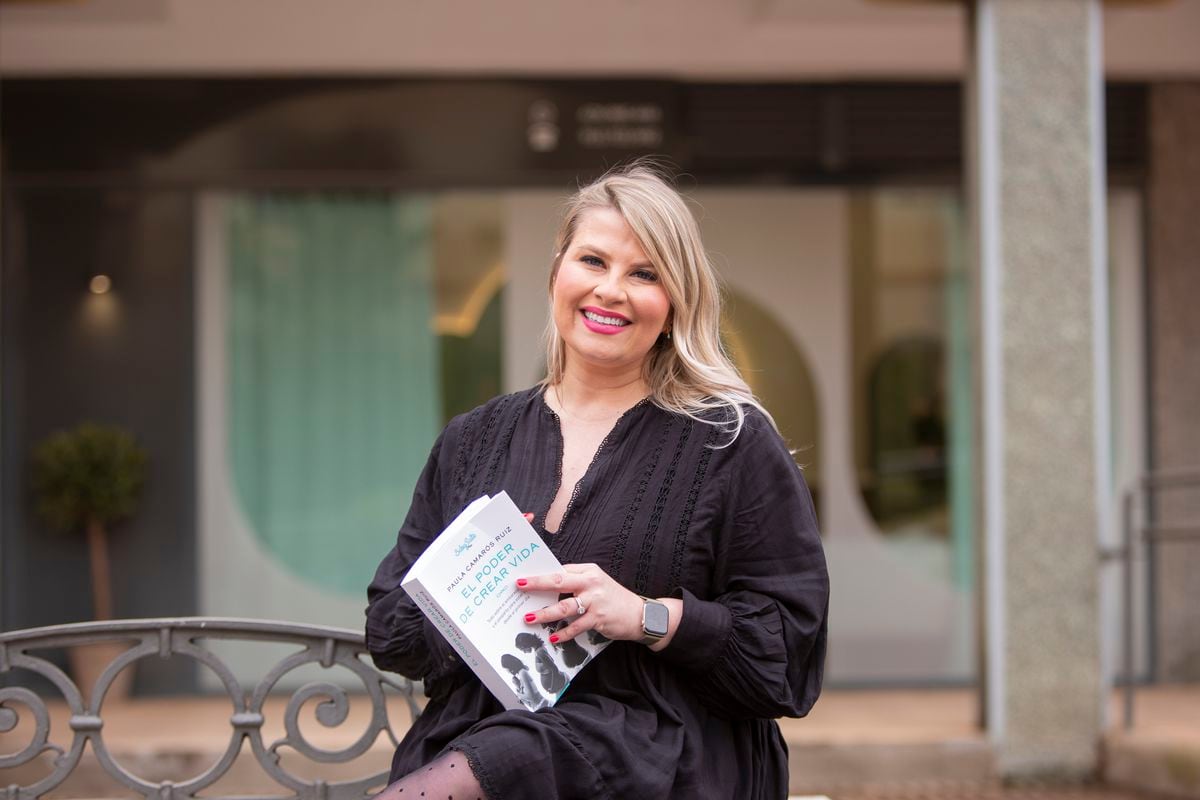Chatty, always with a smile on her face, hyperactive on social networks, wife, mother of two and midwife. A midwife who explains things so everyone understands, in easy and familiar language, but always based on scientific rigor. This is Paula Camarós (Madrid, 34 years old). She primarily disclosed and reported on babies, births and deliveries, but also dealt with spouses, children, and everyday matters. These are SUVs. Perhaps it is because of this enterprising personality that she has managed to connect so well with a growing audience. Currently, he has a follower count of 231,000 which is no small amount your instagram account.
It’s as if Camarós did very little with his life, especially now that he’s just published his first book, The power to create life (Planets). On her page, the midwife provides information on dealing with “what will be one of the biggest challenges in a woman’s life”. And she acknowledges that, despite being immersed in the information age, we continue to be oblivious to many of the realities surrounding childbirth and motherhood.
ASK. Another maternity book to add to the marketplace, but yours has something else in store. The fact that?
ANSWER. Yes, add something else. It’s been over six years since I launched to share on mine Youtube channel and on social networks and for giving me the opportunity to explain midwifery in proper terms to non-medical readers or listeners. when I decide to write The power to create life I set out to provide all the answers a mother needs to experience pregnancy and childbirth in a mindful and empowered way. Information is power, I always say, and in this case, reading my first book will give them the knowledge and calm they need to face what will be one of the biggest challenges, I think, in their lives.
Q The midwifery profession is getting more and more visible, do you think you’ve put your two cents into it?
R. That’s how I feel and I’m proud of it. Midwives play a fundamental role in the care of pregnant women, as well as in the follow-up of newborns through the first 28 days of life. I was trained in England, a country of respected pioneers in childbirth, where I learned that different births and births are possible. After several years there, I decided to accompany the family and be a part of their history here in Spain. Being able to help them bring their babies into the world in a respectful and humane environment is my motivation for opening my center for that Maternity, Baby Room [en él, sugiere acompañamiento a las futuras madres desde el minuto cero].
Q Do you think that some women don’t believe in being accompanied by their midwife in childbirth and want a gynecologist at all costs?
R. I don’t think of it as an issue of disbelief, I think it’s more of a generational issue. In Spain we have great professionals, but also some who are not renewed and continue to train because “it’s always been like that”. On the other hand, I often come across women who are so ignorant, as a result of their pregnancy in two ways (public and private) feeling that more dates are better, even though this is counterproductive for both mother and baby. In addition, midwives are scarce in Spain, making it impossible to offer services at the 1:1 ratio in many of the other countries that lead the list.
Q Are there alternative anesthetics that can reduce pain during delivery?
R. The range that we can offer women for pain relief is vast. From the non-pharmacological level — such as hydrotherapy, sterile water injections or hypnopartum — to intermediate measures — such as Entonox or laughing gas — or pharmacological options such as epidural anesthesia. Therefore, anesthesia is another option for women and they should be informed about everything that is within their reach.
Q For example, what does hypnobirthing consist of?
R. In hypnobirthing, women are trained and prepared to face the birth process as a natural, physiological and calm event. It is done thanks to techniques that promote management of physical activation, muscle relaxation, management of fear, tension and pain. It’s trying to arrive at birth confidently and calmly, being open to living it the way the baby and her body need it. This technique supports pain reduction, respects one’s own decisions and eliminates uncertainty in the process. And it encourages a woman to organize, accept and enjoy all that her body is ready to do, to allow herself to be assisted by those who need it on the day of delivery, to be happy to welcome her baby and to be unafraid in that moment.
Q Is labor painful?
R. With regard to the pain of childbirth, it is important to distinguish what would be good pain, i.e. pain that brings us closer to our baby with each contraction, from pain that implicitly carries negative connotations. In other words, we live immersed in a culture where, unfortunately, childbirth is presented as a painful, dangerous and detrimental event for women. The protocol care provided, as well as the way many women are urged to leave everything in professional hands, increases uncertainty and disbelief in themselves and in their own ability to go into labor.
Q What will be the perfect birth?
R. This answer is complicated and it would be very difficult to pinpoint a perfect birth because beyond the fact that it happens the way a woman wishes, what we have to guarantee at all costs is the health and well-being of the mother-fetus. For this reason, I would say that the perfect birth is one in which, no matter what happens, the woman feels that she is counted, respected and informed at every moment of what is to come.
Q What is the most common fear women experience during pregnancy?
R. To not know how to do it, to not be able to, to be born itself. Feeling scared, afraid and scared. I explain to them that fear serves as a warning that the mode of delivery is not compatible with their well-being and that of their baby. When its origin is understood, you free yourself from the thought that you have to get rid of that emotion, move into another context that is more attuned to you, ally with that fear. When pregnancy or childbirth is affected by horror, without understanding it, it causes the physiological systems that support natural childbirth to be hampered or to work less efficiently. For example by tensing muscles, slowing dilation, or making uterine contractions less productive.
Q Why is postpartum depression still taboo? What is the midwife’s role in it?
R. Mental health in general is a big taboo. In fact, it is said to be the true pandemic of the century. If mental health in general is considered taboo… imagine postpartum. People idealize motherhood. She believes that having a baby makes you happy, joyful, and it creates an instant bond with the baby. And the reality is, time and time again, different… there are women who don’t feel that instant bond, who spend their pregnancies depressed, there are those who experience the trauma of childbirth… We must not look the other way. Couples and wards should sound the alarm and midwives should make urgent referrals to specialists if necessary. And this is the key so that women’s discomfort does not continue.
You can follow Mamas & Papas on Facebook, Twitter or register here to receive our biweekly newsletter.

“Internet trailblazer. Troublemaker. Passionate alcohol lover. Beer advocate. Zombie ninja.”







/cloudfront-us-east-1.images.arcpublishing.com/eluniverso/FTEC73B3HFHWHOUJFHJPCYHHY4.jpg)